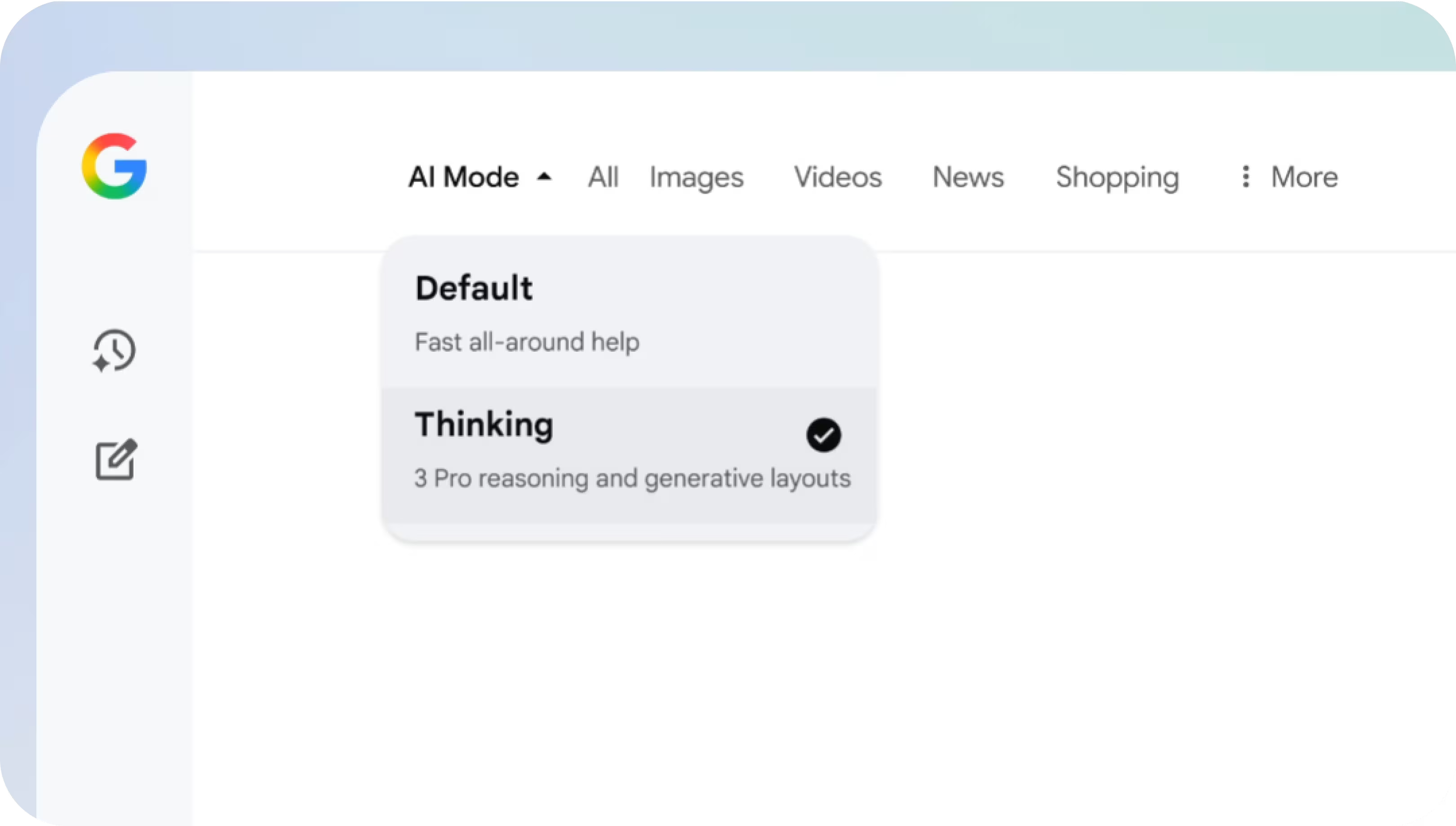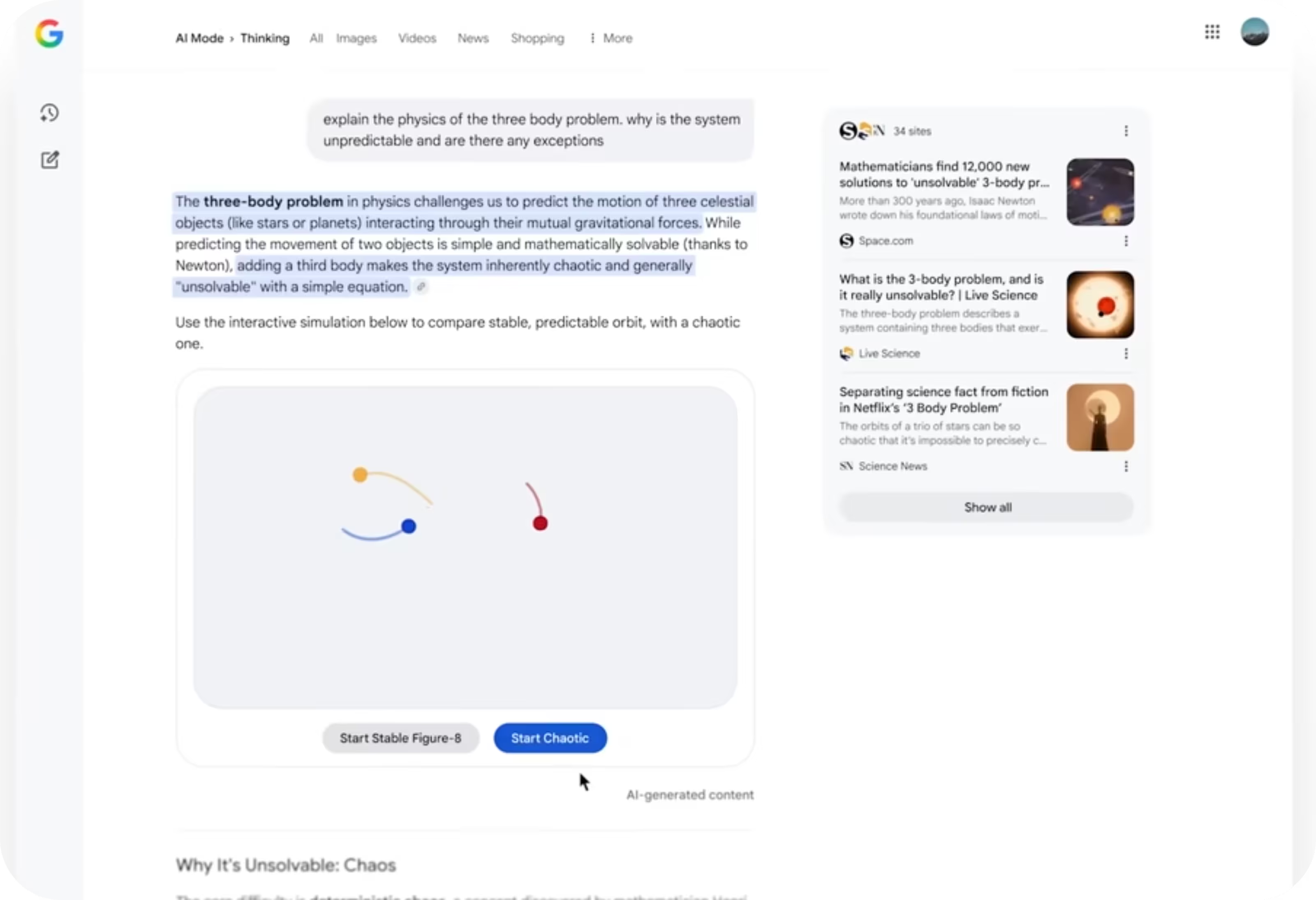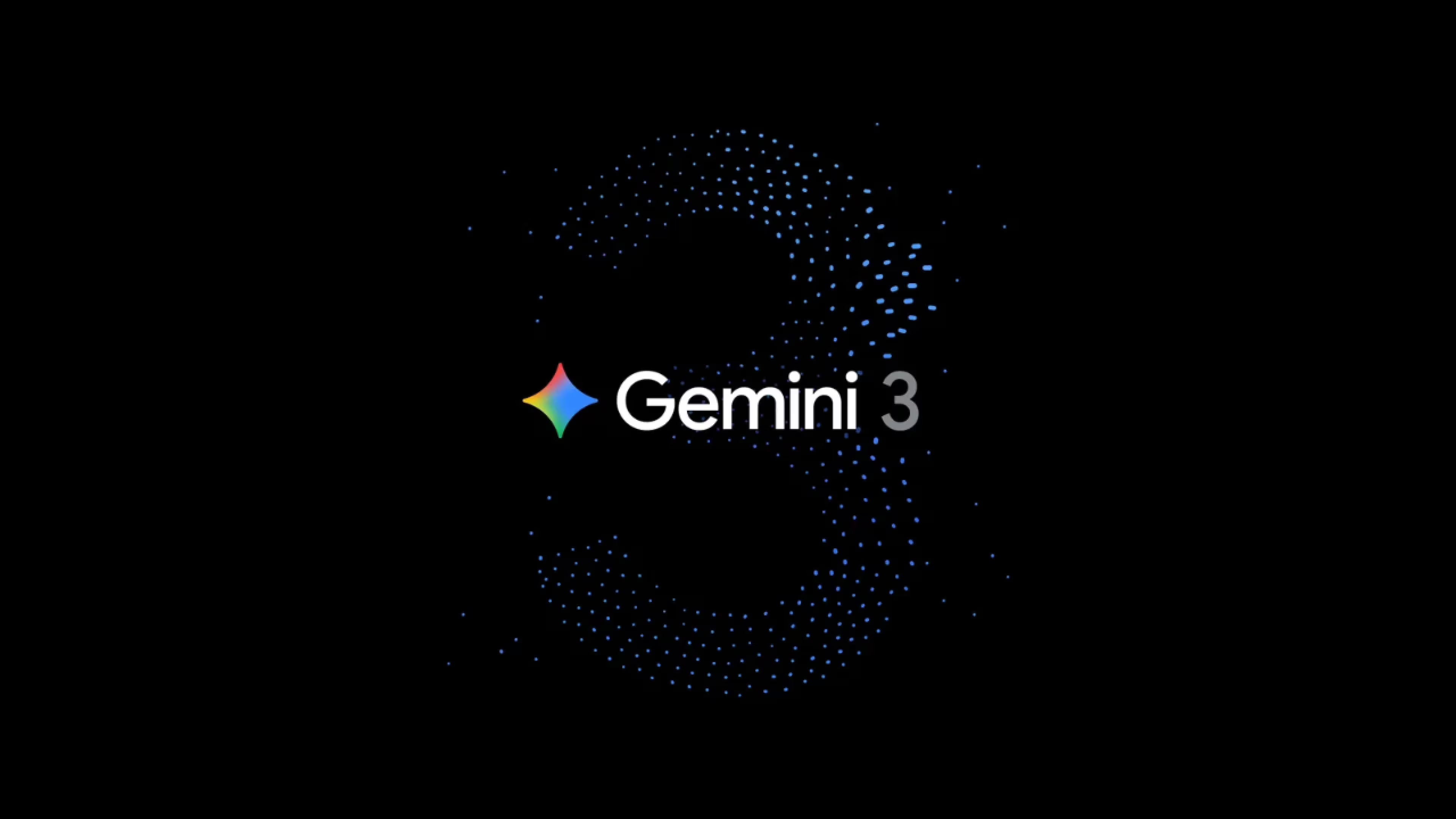Google released Gemini 3 on November 18, 2025, and did something unprecedented: they launched it in Google Search the same day. No beta period, no gradual rollout. According to Google's announcement, this AI now powers answers for 2 billion monthly users through AI Overviews, and the Gemini app itself has 650 million active users. If you run Google Ads or rely on organic search traffic, your metrics probably changed this week, and you need to know what to track before your next client call.
What Actually Happened on November 18
Most Google AI updates crawl out slowly over weeks. Gemini 3 went live everywhere at once.
Search results now include what Google calls "Generative UI": dynamically created interfaces with comparison tables, interactive calculators, and visual layouts built on the fly for each query. Fortune reported this as Google's fastest Search deployment ever.
Your Google Ads now compete with these AI-generated answers. Your organic rankings share space with summaries that pull from multiple sites without always sending clicks back. And attribution just got messier because users research with AI, leave without clicking, then show up three days later as "direct traffic."
The market noticed. CNBC reported Alphabet stock jumped 3% on the news. Warren Buffett had just disclosed a $4.3 billion position in Google, one of Berkshire Hathaway's largest tech bets in years. When Buffett moves that kind of money right before an AI launch, your stakeholders are probably asking questions.
How Gemini 3 Affects Google Ads Performance
D.A. Davidson analysts called Gemini 3 "the current state-of-the-art" after testing. Great. But you don't get paid for using state-of-the-art AI, you get paid when your cost per acquisition stays under target.
Gemini 3 changed paid search by putting AI Overviews with rich visual content above traditional results, which means above your ads too. Users who get satisfactory answers from AI-generated content might not scroll down to where your ads sit.

What Changes You'll See in Your Campaigns
November 18 was days ago. Anyone claiming definitive impact data is guessing. But early reporting shows what the Gemini 3 effect looks like:
- Impression share might shift because "top of page" now competes with AI content blocks that weren't there before. If Google generates a comparison table answering "best CRM software," your CRM ad sits below it.
- Click-through rates could drop (fewer total clicks) while conversion rates improve (clicks you do get are more qualified). One PPC manager saw 18% lower CTR but 12% better conversion rate in the first week. Net result: slightly lower CPA.
- Cost per click is the wildcard. If everyone's CTR drops, competition for remaining clicks might drive prices up. Or total demand drops and CPCs fall. Too early to say which way this goes by industry.
Which Campaign Types Get Hit Hardest
Understanding how Gemini 3 changes Google Ads results by query type matters for budget allocation:
- Informational queries take the biggest hit. Someone searching "how to calculate ROAS" might get a complete answer with an interactive calculator in the AI Overview. Your ad for a marketing analytics platform sits below, competing with a free AI tool that just solved their problem.
- Transactional searches hold up better. "Buy marketing automation software" or "request demo" still drive clicks, users want vendors, not information. Brand searches remain strong because people searching your company name want your site specifically.
Track These Metrics Weekly (Not Monthly)
Pull data from two date ranges:
- November 1-17, 2025 (before Gemini 3)
- November 18-present (after)
Monitor weekly:
- Impression share by position (specifically absolute top. Are you losing visibility to AI content?)
- CTR by campaign type (informational campaigns will move differently than transactional)
- Conversion rate (might improve even if CTR drops)
- Cost per acquisition (the only number that ultimately matters)
- Assisted conversions (under "Search Funnel" in attribution, catches users who research with AI then convert later)
Compare everything against your November 1-17 baseline. A 5% change is noise. A 20% change deserves investigation.
If you're manually exporting Google Ads data every week, Dataslayer's guide to the 15 Google Ads metrics that actually matter explains which numbers correlate with business outcomes versus vanity metrics.
Gemini 3 Impact on Organic Search Traffic
Publishers have reason to worry. Research cited by Fortune shows users click through from AI summaries less than half as often as from traditional results. Google's "query fan-out" technique performs multiple searches behind the scenes to answer one question, your content might power an AI answer without you getting the click or the traffic.
But before you panic, understand what still generates clicks after Gemini 3 launched.
AI Overviews excel at straightforward facts. They're terrible at:
- Recent news (AI models update slowly)
- Nuanced opinions ("best project management tool for remote agencies under 30 people")
- Step-by-step tutorials with screenshots
- Original research with proprietary data
- Real comparison reviews based on actual testing
If your content provides genuine analysis, recent updates, or original data, you'll still capture traffic. Generic "what is marketing attribution" explainer articles will lose visits to AI summaries.

How to Optimize Content for AI Citations
Your SEO strategy now splits: rank high enough to get clicks directly, AND structure content so AI cites you when generating answers.
Use H2 and H3 headings that directly answer questions. "Which Google Ads metrics should marketers track?" works better than "Important Metrics." This helps you rank for how people actually search: "which metrics track Gemini 3 changes" or "how Gemini 3 affects my SEO strategy."
Format key information as tables or numbered lists. AI extracts structured data more easily than prose paragraphs. Compare:
Before: "Several metrics matter in Google Ads including CTR which measures ad relevance, CPC which shows cost efficiency, and conversion rate which indicates landing page quality."
After:
Essential Google Ads metrics to track:
- CTR - measures ad relevance to search intent
- CPC - shows cost efficiency and competition level
- Conversion Rate - indicates landing page quality
Add FAQ sections to important pages. Use actual questions from "People Also Ask" in Google. Make each question an H3 heading with a 2-3 sentence answer. This helps you rank for long-tail queries like "does Gemini 3 affect Facebook ads" or "how to track AI overview impact on campaigns."
Include visible update dates and author credentials. These E-E-A-T signals (Experience, Expertise, Authoritativeness, Trust) help both traditional rankings and AI citation decisions.
Create New GA4 Segments for AI-Driven Traffic
GA4 doesn't explicitly label "traffic from AI Overview" yet, but create segments for:
- Organic traffic with high engagement (2+ page views, 30+ seconds)
- Direct traffic spikes (might be users bookmarking after AI research)
- Sessions with improved bounce rates (AI might be pre-qualifying visitors)
One important note: Google Ads and GA4 count conversions differently, attribution windows, timing, and methodology all vary.
Three things to do this week
- Pull your baseline data from November 1-17 before it's too far back to compare. Export Google Ads, GA4, and Search Console now.
- Check your top 10 keywords in incognito mode. Screenshot which ones show AI Overviews and which competitors get cited. Do this every Friday.
- Pick 2-3 of your best-performing pages and add FAQ sections. Use real questions from "People Also Ask" in Google results. Takes 20 minutes per page.
The marketers tracking this now will have data when their competitors are still wondering if it matters.
Frequently Asked Questions
Does Gemini 3 mean SEO is dead?
No. AI models need web content to generate answers. Content that gets cited in AI Overviews tends to rank well traditionally too. Focus on clear structure, recent updates, and authoritative sources, these help both.
Should I change my Google Ads strategy immediately?
Not yet. Wait 4-6 weeks for patterns to emerge. Don't make budget decisions based on three days of data. Track, monitor, then adjust based on actual trends in how Gemini 3 affects your specific campaigns.
Will Gemini 3 affect Facebook Ads or LinkedIn?
Not directly, Gemini 3 only touches Google properties (Search, Display, YouTube). But Meta is developing AI features. Expect announcements Q1 2026. For now, focus on Google where changes are live.
Can I buy ads inside AI Overviews?
Not yet. Google hasn't announced ad placements within AI Overview boxes. Given that advertising drives 80%+ of Google's revenue, expect AI-native ad formats by mid-2026.
How do I track if my content appears in AI Overviews?
Manual checks only. Google Search Console doesn't separate AI Overview impressions yet. Weekly manual searches in incognito mode, screenshot appearances, track which content formats get cited most often. This shows you exactly how Gemini 3 impacts your organic visibility.
What if my Google Ads performance gets worse after Gemini 3?
Distinguish between "fewer clicks, better conversions" (possibly fine, more qualified traffic) versus "fewer clicks, worse conversions" (problem: strategy needs adjustment). Check conversion rate and CPA, not just click volume. If your cost per acquisition improved even with lower traffic, you might be better off.
Want to automate tracking across Google Ads, GA4, and Search Console? Try Dataslayer free for 15 days, connect all three to Google Sheets or Looker Studio and compare pre/post-Gemini 3 performance in one dashboard without weekly CSV exports.







